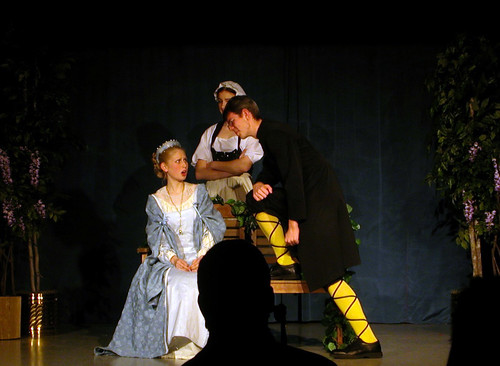I Owe
I owe Frank an answer to the question, “Why do I blog?”
That’s complicated, but the best answer would be that I started blogging as a lark, out of a clear blue sky. I continued blogging because I fell into such lovely conversations with friends such as David, Halley, Tom, Shelley, Chris, Jeneane, Doc, Steve, Gary (and, of course, Frank) among others. Those conversations have died down in some ways — we don’t run into multi-day, multi-blog hash-it-outs as much as we did a couple of years ago — but these friends are still around and blogging strong.
I keep blogging because it’s become part of what I do: part of how I learn, part of how I write, part of how I teach, part of how I think, part of how I keep up with technology.
Oh, and I owe both Joi and Frank observations on current creationist controversies. That’s tricky, because I enjoy watching disputes between evolutionists and creationists as an ongoing drama in intellectual history. I won’t simply align myself with either party; that would take much of the fun out of watching. I remain especially intrigued by the problems evolution hasn’t solved, I am unconvinced by the ways that some “evolutionary” discourses overplay the strength of their theory and data, and I hesitate to endorse whole-heartedly the “evolution” ideological complex that has borne along some awfully unsavory fellow-travelers. At the same time, most of “creation science” is flat-out not science, the arguments in behalf of “intelligent design” (ingenious circumventions of previous fallacies though they be) miss vital points on their own, and the underlying premise — that the Bible must provide a kind of oracular anticipation of scientific knowledge — strikes me as a monumental category mistake. So I’m no creationist, so sirree, but I’m not a card-carrying “shocked, shocked!” evolutionist. (We used to get into stressful situations when other home-schooling families assumed that we held our kids out of school to avoid the “E”-word.) I relish the puzzles and complexities more than either of the proposed answers.
And I owe my Early Church History class a final exam. No, I won’t forget.
I owe David notice for his terrific response to Dinesh D’Souza on authenticity.
I owe the Tutor a similar notice for his observations on family values and the state of the culture.
All that doesn’t begin to catch me up on obligations — but it helps correct the perilous spiral of behindness I had slipped into.
